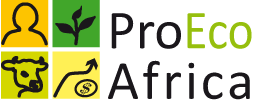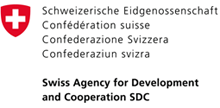Project Steering Committee (PSC)
The African Organic Network (AfrONet)
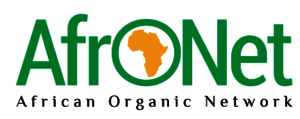
Formation of the African Organic Network (AfrONet) started in April 2008 in Dar Es Salaam, Tanzania, at a meeting of three East African National Organic Agriculture Movements (NOAMs), Kenya Organic Agriculture Network (KOAN), National Organic Agriculture Movement of Uganda (NOGAMU) and Tanzania Organic Agriculture Movement (TOAM). In 2009, the African meeting of NOAMs present at the first African Organic Agriculture Conference in Kampala, Uganda, reiterated the need for the formation of an umbrella Body to steer organic agriculture networking in Africa. Since then, AfrONet has continued to be strengthened and in May 2012 AfrONet was endorsed to be the continental Organic Agriculture (OA) Network in Africa, that strives to have; i) 40% of African Governments invest in research and capacity strengthening to promote EOA, ii) adoption of EOA technologies and practices increased by 70% and contribute to improved health, climate change mitigation and environmental conservation, iii) increase food security and sovereignty of African smallholder farmers by 50% and iv) increase the share of trade in organic produce and products by 70%.
More information about AfrONet: www.afronet.bio
Contacts for the projects at AfrONet
Uhuru Road
Mafao House 15th Floor
Ilala
P. O. Box 70089
Dar Es Salaam, Tanzania
Phone +255 732-975799
afronet2015(at)gmail.com
Biovision Africa Trust

Biovision Africa Trust (BvAT), a not-for-profit organization established in Kenya in 2009 by the Swiss-based Biovision Foundation for Ecological Development, is situated on the main campus of the International Centre of Insect Physiology and Ecology (ICIPE) in Kasarani, Nairobi. The Trust’s goal is to alleviate poverty and improve the livelihoods of smallholder farmers in Kenya and other African countries, through supporting sustainable agricultural projects and initiatives focusing on generation and dissemination of information and knowledge on appropriate technology, to improve human, animal, plant, and environmental health. BvAT supports the Biovision Farmer Communication Programme (FCP) and other agro-based initiatives in Africa.
More information about Biovision Africa Trust: www.biovisionafricatrust.org
Contacts for the projects at Biovision Africa Trust
David Amudavi
c/o icipe
P.O. Box 30772
00100 Duduville Kasarani
Nairobi, Kenya
Phone +254 (20) 863-2008
damudavi(at)biovisionafricatrust.org
Forum for Agricultural Research in Africa (FARA)
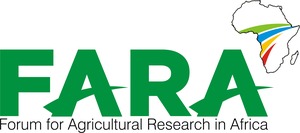
Conceived in the late 1990’s and voted into existence in 1997 by Sub-Regional Organizations in Africa, the Forum for Agricultural Research in Africa (FARA) is the apex continental organization responsible for coordinating and advocating for agricultural research for development (AR4D). Headquartered in Accra, Ghana, FARA serves as the technical arm of the Africa Union Commission on matters concerning agriculture science, technology and innovation and also serves as the entry point for agricultural research initiatives designed to have a continental reach or a sub-continental reach spanning more than one sub-region. FARA provides a continental forum for stakeholders in AR4D to shape the vision and agenda for this sub-sector, and to mobilize themselves to respond to key continent-wide development frameworks, notably the Comprehensive Africa Agriculture Development Programme (CAADP). FARA also plays a key role in galvanizing the agricultural research for development sector, and brings a strong African voice to global forums such as the G-8 and the Global Forum on Agricultural Research (GFAR).
More information about COCOBOD: www.faraafrica.org
Contacts for the projects at FARA
Nelson Ojijo
Forum for Agricultural Research in Africa (FARA)
12 Anmeda Street
Roman Ridge, Accra, Ghana
Phone +233 302 772-823
nojijo(at)fara-africa.org
Research Institute of Organic Agriculture (FiBL)

The Research Institute of Organic Agriculture FiBL Switzerland, FiBL Germany and FiBL Austria are centres for research and consulting on organic agriculture.
FiBL Switzerland was founded in 1973. FiBL's strengths are closely linked interdisciplinary research and the rapid transfer of knowledge from research to extension to agricultural practice. FiBL Switzerland employs a staff of over 175 employees. FiBL has long been committed to the international development of organic agriculture. It works closely with the International Federation of Organic Agriculture Movements (IFOAM) and other international organisations. FiBL has a highly competent staff with expertise in organic soil management, plant production, holistic animal health, animal ethology and organic animal breeding, in socioeconomics, in comprehensive analysis of the organic market, in organic food processing and production and in regional marketing and development. Along with practical research, FiBL places a high priority to knowledge transfer into agricultural practice through advisory work, training courses and expert reports through many means of dissemination, including magazines, technical leaflets, reference books, video and internet. Numerous FiBL projects in Eastern Europe, India, Latin America and Africa promote the development of organic research services as well as advisory and certification services.
More information about FiBL: www.fibl.org
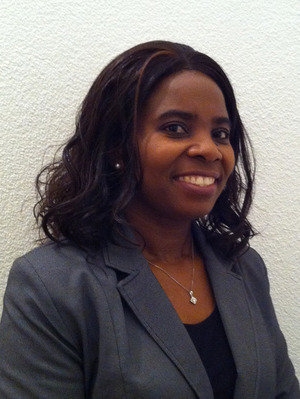
Contacts for the projects at FiBL
Irene Kadzere
ProEcoAfrica Project Coordinator
Department of International Cooperation
Research Institute of Organic Agriculture, FiBL
Ackerstrasse 113, P.O. Box 219
5070 Frick, Switzerland
Phone +41 (0)62 865-7276
Fax +41 (0)62 865-7273
irene.kadzere(at)fibl.org
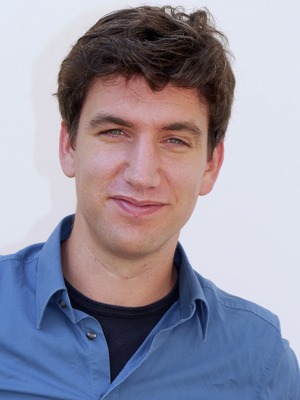
Christian Schader
Head, Sustainability Assessment
Department of Socioeconomics
Ackerstrasse 113 P.O. Box 219,
5070 Frick, Switzerland
Phone +41 (0)62 865-0416
Fax +41 (0)62 865-7273
christian.schader(at)fibl.org
Zukunftsstiftung Entwicklung

The GLS Future Foundation for Development supports people in their endeavor to achieve an ethical, ecological and social world in form of a cooperation based on communication on equal terms from a holistic development perspective. The GLS Foundation was founded in the context of the “Gemeinschaft für Leihen und Schenken” (GLS) out of the impulse for a conscious use of money, taking responsibility for social, ecological and economic cooperation on the international level. Currently (August 2016) it is cooperating in long term partnerships with 84 partners in 20 countries in Africa, Asia and Latin America. The Foundation derives substantial support from local partners to lay out groundwork for a self-determined life in dignity. The cooperation focusses on organic agriculture, water management and the regional trading of organically produced agricultural goods. The aim is to secure self-sufficiency for the small-scale farmers based on their resources and their own possibilities followed by the promotion of local and regional economic cycles. With a special focus on women, the GLS Foundation also supports work in holistic health care, emancipatory education, human and ecologic rights, microbusinesses and transparent microcredits accompanied by adequate trainings, as well as the use and promotion of renewable energies. From thirty years of development cooperation, GLS Foundation recognizes that change can only be successful when it is implemented over long periods of time, and that when change has become part of everyday life and sustainable economic independence is achieved. For this reason, the GLS Foundation accompanies people and their projects beyond a predetermined timeframe. The Foundation aspires to enable people - despite globalization - to create decentralized and self-determined habitats, which are ecologically, economically, socially and culturally sustainable.
More information about GLS Future Foundation for Development: www.zukunftsstiftung-entwicklung.de
Contacts for the project at GLS Future Foundation for Development
Annette Massmann
Zukunftsstiftung Entwicklung
Christstraße
Postfach
44774 Bochum, Germany
Tel.: +49 234 5797-5224
annette.massmann(at)gls-treuhand.de
Dr. Annette Massmann studied communication, philosophy, history and German literature at Ruhr University Bochum, and economics and Latin American history in Santiago, Chile. She did her PhD on Implementation of New Technologies and Impact on Changes of Society in Habana, Cuba and Bochum, Germany. Dr. Massmann worked as consultant for different NGOs in Central America and is a co-founder of the Institute for Media and Cultural Studies, RUB Bochum as well as the Institute for Social Banking – Training and Research. Since 2005, she has been working as CEO of GLS Foundation for the Future-Development (GLS Zukunftsstiftung Entwicklung) cooperating with 84 partner organizations in 20 countries.
Dutch Humanist Institute for Cooperation (Hivos)

Hivos is an international organisation that seeks new solutions to persistent global issues (discrimination, inequality, abuse of power and the unsustainable use of the planet’s resources) and focusses on achieving structural change. Hivos cooperates with innovative businesses, citizens and their organisations and shares with their partners a dream of sustainable economies and inclusive societies. The Organization works on advocacy and campaigns directed at governments, international institutions, businesses and citizens in the North or at the global level. Hivos works in Africa, Asia and Latin America.
More information about Hivos: www.hivos.org
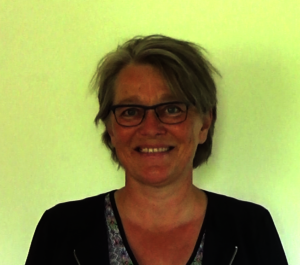
Contacts for ProEcoAfrica at Hivos
Willy Douma
Raamweg 16
2596 HL
The Hague, Netherlands
Phone +31 (0)70 376-5500
wdouma(at)hivos.org
Dr Willy Douma is analytical, intuitive and seeks connections. She feels inspired by and committed to work on sustainability issues in agriculture and food systems. She brings broad experiences and continues to develop those together with change agents from around the world from public and private sectors. Willy Douma helps to facilitate change, implement programmes on green issues in society and keeps an eye on the joy factor.
IFOAM - Organics International
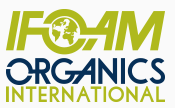
IFOAM– Organics International is the only international umbrella organization of the organic world, i.e. all stakeholders contributing to the organic vision. Its goal is the worldwide adoption of ecologically, socially and economically sound systems, based on the Principles of Organic Agriculture. IFOAM Organics International implements the will of its broad-based constituency, with some 800 Affiliates in 117 countries and is governed by a World Board originating from all continents. This allows IFOAM Organics International to unite, lead and assist the organic movement in its full diversity, while providing a common voice on relevant organic issues. The IFOAM Action Network comprises self-organized IFOAM regional and sector groups and daughter organizations. In Africa, it partners with AfrONet http://www.africanorganicnetwork.org
More information on IFOAM - Organics International: www.ifoam.bio
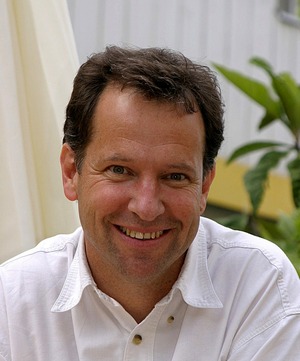
Contacts for the project at IFOAM Organics International
Markus Arbenz
Charles-de-Gaulle Strasse 5
53113 Bonn, Germany
Phone +49 228 92650 10
m.arbenz(at)ifoam.bio
Mr. Markus Arbenz, is the Executive Director of IFOAM – Organics International since 2009. IFOAM-Organics International is the global organic umbrella with 800 members in 120 countries with the purpose to cultivate change for true sustainability in agriculture. Markus and his team set global landmarks, organize the Organic World Congress, advocate to international bodies such as the United Nations, maintain the global organic guarantee system, implement programs and train future organic leaders. Prior to that, Markus worked as Director of Bio Suisse, Federation of the Swiss Organic Farmers and owner of the bud label. He has six years of experience in Bhutan, Kyrgyzstan and Afghanistan, with Helvetas, in collaboration with Swiss and local Governments, the World Bank and the International Fund for Agriculture Development (IFAD).
International Institute of Tropical Agriculture (IITA)
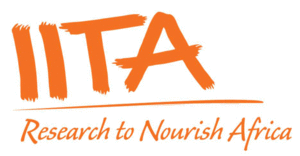
The International Institute of Tropical Agriculture (IITA) is one of the world’s leading research partners in finding solutions for hunger, malnutrition, and poverty. IITA is a non-profit international organization founded in 1967 and governed by a Board of Trustees. Its award-winning agricultural research for development (R4D) addresses the needs of the poor and vulnerable in the tropics. It works with public and private sector partners to enhance crop quality and productivity, reduce risk to producers and consumers, and generate wealth from agriculture. The Institute’s R4D covers the following themes: biotechnology and genetic improvement, natural resource management, plant production and plant health, and social science and agribusiness. For the last 45 years, IITA’s agricultural R4D has delivered over 70 per cent of CGIAR impact in sub-Saharan Africa. It has achieved this impact by focusing on key tropical food crops, such as banana and plantain, maize, cassava, soybean, cowpea, tree crops, and yam. With the mission to enhance food security and improve livelihoods through R4D, IITA tackles these challenges by pursuing these interrelated objectives: improving food security, increasing the profitability of foods and other agricultural products, reducing risks to producers and consumers, and helping national entities to expand agricultural growth.
More information about COCOBOD: www.iita.org
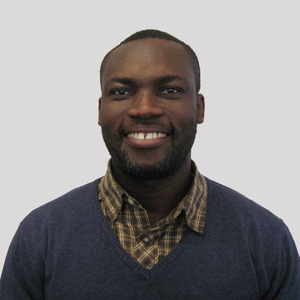
Contacts for the projects at IITA in Ghana
Richard Asare
IITA-Ghana
Council for Scientific and Industrial Research (CSIR) – INSTI Building
Off Augostinho Neto Road
Airport Residential Area
PMB LG 56
Legon, Ghana
Phone +233 303 931-023
r.asare(at)cgiar.org
Dr. Richard Asare is a Cocoa Agroforester working with the International Institute of Tropical Agriculture (IITA). He is based in Ghana, from where he also serves as the Focal Point, coordinating scientific activities under the CGIAR Research Program on Integrated Systems Research for the Humid Tropics (Humidtropics) in West, East and Central Africa. His in-depth knowledge on integrated tree crops systems coupled with his practical field experience in tree management on farmlands strengthens his expertise with regards to sustainable agricultural land-use practice. Richard has over 14 years of work experience in research and development on cocoa and has developed a comprehensive framework that packages tree diversification options on cocoa farms in a way that improves, encourages and promotes local knowledge according to environmental conditions, farmer tree species preferences, market demands, and improved planting material availability. He has used this model to train many stakeholders on cocoa rehabilitation and diversification in the Humid Tropics of Africa, particularly Cameroon, Côte d’Ivoire, Ghana, Liberia and Nigeria.
Kenya Agricultural and Livestock Research Organization (KALRO)
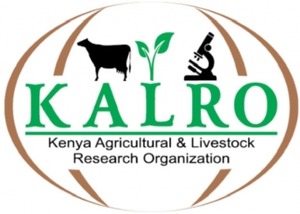
The Kenya Agricultural and Livestock Research Organization (KALRO) was formed in 2014 following an act of parliament aimed at restructuring agricultural and livestock research into a dynamic, innovative, responsive and well-coordinated system driven by a common vision and goal. The formation of KALRO saw the merger of four former agricultural research institutions namely, the Kenya Agricultural Research Institute (KARI), the Tea Research Foundation (TRF), Coffee Research Foundation (CRF) and the Kenya Sugar Research Foundation (KESREF). KALRO’s mandate is to: Promote, streamline, co-ordinate and regulate research in crops, livestock, genetic resources and biotechnology in Kenya; Expedite equitable access to research information, resources and technology; and to Promote the application of research findings and technology in agriculture. The organization envisions to be a “global leader of excellence in crop and livestock research” for increased resource use efficiency, productivity, food and nutrition security, employment creation, climate change resilience and environmental sustainability.
More information about KALRO: www.kalro.org
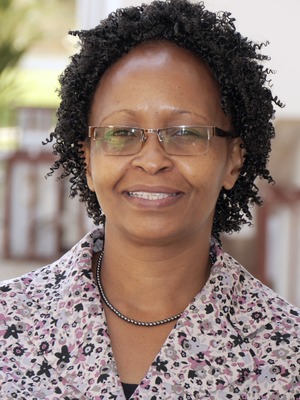
Contacts for the projects at KALRO
Anne Muriuki
P. O. Box 57811
00200 Nairobi, Kenya
Phone +254 20 202464435
muriukianne(at)gmail.com
Agro Eco-Louis Bolk Institute
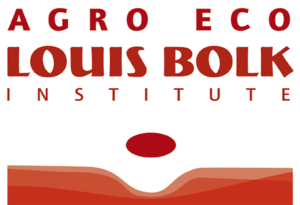
The Louis Bolk Institute (LBI) is an independent research, advisory, training and development institute that works to advance sustainable agriculture, nutrition and health. The institute is known for its participatory and systems approach (‘making systems work’) and is acknowledged for its implementation skills and practical solutions. Its results lead to healthy and sustainable growth of humans, animals, plants and soils. LBI was founded in 1976 and is located in Driebergen, the Netherlands. In Africa, LBI operates under the name Agro Eco-Louis Bolk Institute. In Ghana LBI has two offices in Accra and Kumasi. Agro Eco-LBI has a history of developing close to 80 value chains in the tropics, for businesses and for development NGOs. Agro Eco-LBI works primarily together with farmers, NGOs, government ministries, European Commission, the UN, Universities, Development Centres, research institutions including the CGIARs, and private companies.
More information about LBI: www.louisbolk.org
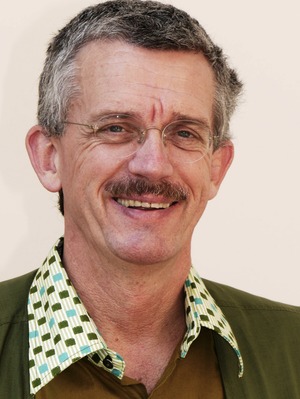
Contacts for the project at LBI
Bo van Elzakker
Director
Department of Tropical Agriculture
Agro Eco – Louis Bolk Institute
Centrumlaan 2
6869 VE Heveadorp, Netherlands
Phone +31 26 333 6478
b.vanelzakker(at)louisbolk.org
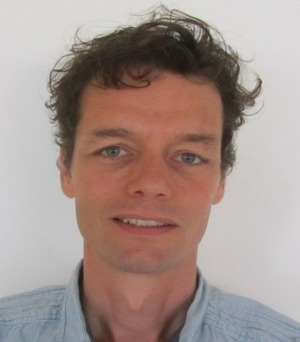
Willem-Albert Toose
Christman House, Room 317
PMB KA 84 Airport Accra, Ghana
Phone +233 (0)302 786-097
w.toose(at)agroeco.net
Makerere University, College of Agricultural and Environmental Sciences, School of Agricultural sciences
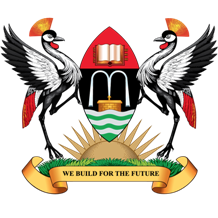
Established in 1922 as a humble technical school and later renamed Uganda Technical College, Makerere University is one of the oldest and most prestigious Universities in Africa. The College expanded over the years to become a Center for Higher Education in East Africa in 1935 and started developing into an institution of higher education, offering post-school certificate courses in 1937. In 1949, it became a University College affiliated to the University College of London, and became established as the University of East Africa in 1963, later becoming an independent national university of the Republic of Uganda in 1970. Currently, Makerere University offers not only day but also evening and external study programmes to a student body of about 30,000 undergraduates and 3,000 postgraduates (both Ugandan and foreign). It is also a very active centre for research. The University has since July 2011 become a Collegiate University, consisting of 8 Colleges and 2 Schools, operating as semi-autonomous units of the University. Makerere University’s vision is to be a centre of academic excellence, providing world class teaching, research and services relevant to sustainable development in Uganda. It’s principal goal is to provide high quality teaching, carry out relevant research and offer professional services to meet the changing needs of society. The main aim is to utilize world worldwide and internally generated information and technology to enhance the University’s leading position in Uganda and beyond.
More information about Makerere University: www.mak.ac.ug
Contacts for the projects at Makerere University
Fred Kabi
Makerere University
College of Agricultural and Environmental Sciences
School of Agricultural sciences
Department of Agricultural Production
P.O.Box
7062 Kampala, Uganda
Mobile +256 772 657155
fred.kabi(at)gmail.com
Dr. Fred Kabi, an associate professor of animal nutrition at Makerere University, proactively engages both graduate and under graduate students at the University in training, outreach and research for sustainable Development (R4D) in agriculture. Over the years, he has collaborated in efforts aimed at developing a critical mass of cadres through national, regional and international networks with resultant mobilization of financial and high caliber human resources from first class universities and industries from the North to Makerere University. His collaborative work has received support from e.g. Danish International Development Agency (on Productivity and Growth in Organic value chains (ProGrOV), Swiss Agency for Development and Cooperation and Swedish society for Nature Conservation (through the Ecological organic Agriculture Initiative for which Professor Kabi leads a pillar on Information Communication at Makerere University), World Bank (MSI) funded public private partnership project on molasses commercialization, EU funded programme on promoting excellence in Ph.D. and graduate programmes in East Africa (PREPARE-PhD) (EDULINKs I & II), USAID funded project on earthworm domestication for vermicompost and as an alternative protein source for livestock. He has also collaborated with the Global Knowledge Initiative (GKI) to enhance learning and innovation networks for knowledge and solutions, as well as with UNESCO on Techno-prenuership for successful innovations in science and technology in developing countries. Other initiatives include collaboration with International Centre for Development oriented Research in Agriculture (ICRA) on interactive learning, action research and outreach. He also collaborates locally with e.g. the National Resources Research Institute (NaLIRRI) in PhD student supervision. Professor Kabi is a certified member of the International Society of Organic Agriculture Research and is author/co-author to many international refereed journal articles. The extensive collaboration helps Professor Kabi to contribute to translating science into tangible sellable products and services in Uganda and spur sustainable and innovative development of agribusiness for economic growth, improved livelihoods and sustainable development.
Stiftung Mercator Schweiz (Mercator Foundation Switzerland)
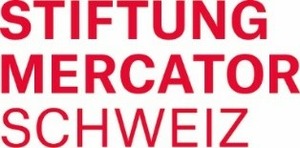
Mercator Foundation Switzerland is committed to a dedicated and open-minded society that deals responsibly with the environment and that provides children and adolescents with equal education opportunities. For this purpose, the foundation initiates projects and supports initiatives of organizations and institutions that share its objectives. The foundation supports scientific and practice-based projects, empowers organizations in their development and aims to ensure that experiences and knowledge are disseminated. The support of young people in Switzerland plays a central role in the foundation’s work.
More information about Mercator Foundation Schweiz: www.stiftung-mercator.ch
Contacts for OFSA at Mercator Foundation Switzerland
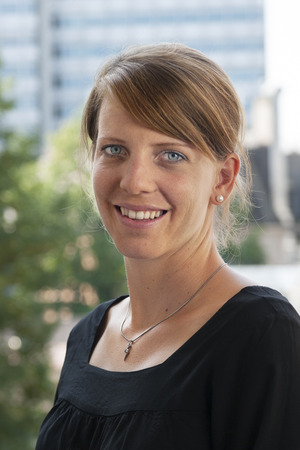
Stephanie Huber
Project Manager
Gartenstrasse 33
Postfach 2148
8022 Zürich, Switzerland
Phone +41 (0)44 206-5581
s.huber(at)stiftung-mercator.ch
Ms. Stephanie Huber studied Geography at the Universities of Zurich and Berne. At Mercator Foundation Switzerland, she is particularly in charge of "ecological farming and nutrition" as one main concern and area of action of the foundation. In addition, she provides support to projects in the fields of "sufficiency" and "international cooperation".
Swiss Agency for Development and Cooperation (SDC)

The Swiss Agency for Development and Cooperation (SDC) is Switzerland’s international cooperation agency within the Federal Department of Foreign Affairs (FDFA). In operating with other federal offices concerned, SDC is responsible for the overall coordination of development activities and cooperation with Eastern Europe, as well as for the humanitarian aid delivered by the Swiss Confederation. The goal of development cooperation is that of reducing poverty. It is meant to foster economic self-reliance and state autonomy, to contribute to the improvement of production conditions, to help in finding solutions to environmental problems, and to provide better access to education and basic healthcare services.
Among its activities in the priority topic Agriculture and Food Security SDC contributes to a strengthening of agricultural research for development (ARD). Two of SDC’s focus areas in ARD are:
- Assessing the potential of organic agricultural farming systems in tropical and other ecosystems.
- Supporting the development and scale up of innovative crop improvement technologies and management systems that enhance production system productivity.
SDC co-finances the project ‘Productivity and Profitability of Organic and Conventional Farming Systems: A Comparative Analysis in Sub-Saharan Africa' of the Research Institute of Organic Agriculture (FiBL) and its partners in Ghana and Kenya, as well as at regional and global levels.
More information about SDC: www.sdc.admin.ch
Contacts for ProEcoAfrica at SDC
Peter Sidler
First Secretary
Development Cooperation
Embassy of Switzerland in Ethiopia
Swiss Federal Department of Foreign Affairs FDFA
Swiss Agency for Development and Cooperation SDC
Old Airport
Lideta Kifle Ketema
Kebele 02/03
P.O. Box 1106, Addis Ababa, Ethiopia
Phone +251 11 371-2805
peter.sidler(at)eda.admin.ch
University of Ghana, College of Basic and Applied Sciences
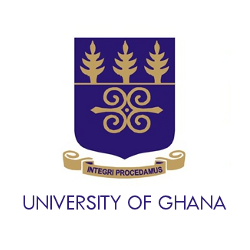
Created in 1948 under the name Faculty of Agriculture, the now College of Basic and Applied Sciences of the University of Ghana, Legon, trains personnel to meet the demand for high level professional manpower in the agricultural sciences (including soils, crops and animals and), post-harvest, family and consumer sciences, agricultural economics, agricultural administration, agribusiness management in research, and teaching, advisory work and business management for Ghana and the West African sub-region. The College also has a School of Veterinary Medicine and School of Engineering. The schools, departments and research centres of the College conduct research, and provide extension services to government agencies, multinational agencies, private companies, and private individuals in the fields of agronomy, postharvest, agricultural economics, agribusiness and rural development and recycling of organic waste for agricultural purposes. The College of Basic and Applied Sciences aspires to be a College of excellence in research and training in all relevant areas that the various departments focus on. It seeks to provide a congenial environment for the training of highly qualified and enterprising agriculturist, scientists and business practitioners for the purposes of training/teaching, research and extension.
More information about University of Ghana: www.ug.edu.gh
Contacts for the projects at University of Ghana:
Irene S. Egyir
College of Basic and Applied Sciences
Phone +233 (0)302500-180/233 (0) 24 0932-768
ireneegyir(at)yahoo.com
Dr. Irene Susana Egyir is a Senior Lecturer in the University of Ghana’s Department of Agricultural Economics and Agribusiness, College of Basic and Applied Sciences. She holds a Ph.D from the University of Ghana, Legon. In the past two decades, Dr. Egyir has engaged herself in a number of research and consultancies that allowed her to investigate a wide range of issues in farm agriculture, post-harvest loss reduction, marketing, microfinance, ICT for agricultural development and gender equality issues. She has 26 journal articles, 34 technical reports and 9 book chapters. Since 1998, she has travelled extensively to participate in workshops and conferences in Asia, Australia, Europe, North America and rest of Africa to learn and share and gain exposure. Her current research is in economics of organic and conventional cropping systems, socio-economics of composting and fish feed development from insect larvae, gender-equality policies and food security and sustainable intensification in agriculture. She is currently the Technical Advisor to the Agriculture and Agribusiness Unit at the Ministry of Finance. Dr. Egyir is the founder and Director of a development NGO, Multi-Features and Capacity-enhancing Services (MFCS) Limited.
Ofosu_Budu Kwabena
College of Basic and Applied Sciences
Phone: +233 (0)302500-180/233 (0)240932-768
o_budu@yahoo.com; obuduster(at)gmail.com
Prof Ofosu-Budu is an Associate Professor and Head of the Forest and Horticultural Crops Research Centre-Kade, of the School of Agriculture, College of Basic and Applied Sciences, University of Ghana Legon. He attended University of Ghana (B.Sc. Hons Agric) and Hiroshima University (M. Sc , Ph.D) in Japan, under the prestigious Monbusho scholarship. He teaches various courses in perennial tree crops (Rubber, Oil palm, Cocoa and Citrus) at both undergraduate and graduate levels. He is one of the leading scientists on citrus, and rubber in Ghana, and has served as consultant to the World Bank, FAO and International Institute of Tropical Agriculture in Ghana and Liberia. His interest in sustainable plant nutrition led him to conduct research into the recycling of organic waste and use in crop production. He has trained Ph.D students, Masters and Bachelor students in recycling of both agricultural and municipal organic solid wastes in Ghana. He has consulted for several agricultural companies such as Benso Oil Palm Plantation, Twifo Oil Palm Plantation, PINORA Fruit Processing Company where he successfully recycled the organic wastes generated by these companies into organic fertilizers (compost). Professor O-Budu has published extensively on compost production, quality and use for crop production. He has served on several consultancy services for the, World Bank, FAO, JICA, GIZ and the Ministry of Food and Agriculture. He is working on soilless media for vegetables (tomato, cabbage) raising of planting materials of tree crops (cocoa, oil palm, citrus) and plantain, using locally available resources such as sawdust, compost, rice husk biochar. He is also interested in the effects of climate change on perennial tree crops (cocoa and oil palm) and use of organic fertilizers on tree crops (cocoa and oil palm). He serves on several Boards of the University of Ghana, Legon. He is the National Coordinator of the Ghana Compost Project and ORM4Soil Project, co-researcher of the Pro-Eco Organic Agriculture Project, all projects funded by the Swiss National Research Fund. He is a Board member of the Accra Compost and Recycling Project (ACARP).
Center for Development Research (ZEF)
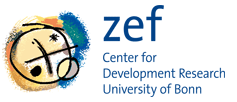
Center for Development Research (ZEF), Bonn University, Germany The Center for Development Research (ZEF) is an institute of the University of Bonn, Germany. It started its research activities in 1997. ZEF's researchers aim to find science-based solutions to development-related issues. ZEF’s research departments on Economic and Technological Change, Political and Cultural Change, and Ecology and Natural Resources Management conduct inter- and trans-disciplinary research in, for and with emerging economies and on global issues with its collaborating research partners around the world. ZEF educates doctoral students from all over the world in its Doctoral Studies Program. ZEF is guided by an International Advisory Board.
More information about ZEF: www.zef.de
Contacts for the projects at ZEF
Christian Borgemeister
Walter Flex Str. 3
53113 Bonn, Germany
Phone +49 228 73 1866
cb(at)uni-bonn.de
Professor Borgemeister obtained his PhD in Horticulture from Leibniz Hannover University (LUH) in 1991. He lectured at LUH before embarking on a research career in Africa in 1992. Until the end of 1997 he worked at the International Institute of Tropical Agriculture (IITA), in Benin, West Africa first as a Postdoctoral Fellow, then as an Associate and finally as a Senior Scientist coordinating a multi-country program on the integrated control of an invasive stored-product pest. He returned to Germany in 1998 working as an Assistant, then Associate and since 2003 as a Full Professor for Applied Entomology at LUH. From 2000–2001, he was also a Visiting Professor for Applied Zoology at the Justus-Liebig-University Giessen, Germany. From 2005 to 2013 he was the Director General of icipe, the International Centre of Insect Physiology (www.icipe.org), a Nairobi, Kenya headquartered pan-African R&D Centre. In October 2013 he was appointed Full Professor at the University of Bonn as Head of the Department for Ecology and Natural Resources Management of ZEF, the Centre of Development Research (www.zef.de). Since January 2015 he is the Managing Director of ZEF. Borgemeister is a Fellow of the African Academy of Sciences, the Royal Entomological Society and the Entomological Society of America. Borgemeister was for >8 years Chief Editor of the International Journal of Tropical Insect Science (published by Cambridge University Press) and has affiliations with other distinguished scientific journals as reviewer. He has authored and co-authored over 130 papers in peer-reviewed scientific journals, has co-authored a book on biological control in Africa, and has written over 10 chapters for different scientific books.
 This website was archived on December 2, 2022 and is no longer updated.
This website was archived on December 2, 2022 and is no longer updated.